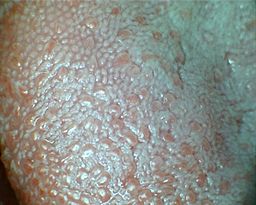Emotional Eating Could Be Linked To Stress Hormone In The Taste Buds
When a person is stressed out it can lead to eating sugary foods to make us feel better. However, researchers from the Monell Chemical Senses Center in Philadelphia, PA may have discovered why people do this. In a recent research study, the team investigated identified receptors for stress activated hormones located in oral taste buds that are responsible for detecting savory, bitter and sweet tastes.
Research Study
 A research study conducted by M. Rockwell Parker, PhD, was recently published in the journal of Neuroscience Letters journal.
A research study conducted by M. Rockwell Parker, PhD, was recently published in the journal of Neuroscience Letters journal.
According to scientists, people under stress can experience an increase in the secretion of hormones called glucocorticoids. These hormones activate the receptors located within the cells of the body.
The team explains these hormones work by binding to the receptors inside target cells. This in turn will activate the receptors, causing them to move to the cell nucleus where it influences protein assembly and gene expression. The activation of these receptors is known to influence the taste preferences in humans and rodent subjects.
It is well known that being under stress can make a person choose unhealthy foods. It can lead to emotional eating, which can mean overindulging in high-calorie, sweets and fatty foods. These foods may be consumed in a bid to help the person abolish any negative emotions and feelings.
The team wished to see whether the taste buds on a person’s tongue contained these receptors and if so, whether stress activates them.
tress and Your Taste Buds
In the study, mouse subjects were used and researchers found receptors located in the cells on the tongue that are responsible for identifying sweet, savory and bitter flavors.
The highest concentration of receptors were located in taste cells called Tas1r3, which are specifically sensitive to sweet and savory tastes.
In order to discover if these cells are activated by stress, researchers looked at the number of cells that had receptors in the nuclei of both stressed and non-stressed mice.
The results of the study found that 77% of the mice had higher levels of the receptors in their taste buds than non-stressed mice did.
Researchers state the study indicated the receptors attuned to sweet taste perception and intake of sugary foods may be directly influenced by these receptors secreting and activating, which is triggered by episodic stress.
The study also indicated stress is known to contribute to an increase in the consumption of salty foods. However, in this study the team didn’t find any receptors in the taste buds that were associated with salty and sour tastes. It is felt this could be due to stress having an influence on the processing of salty tastes in the brain.
Human taste buds are not just located on the tongue, they can also be located in the pancreas and gut. The team thinks stress could also influence the taste receptors in these locations as well.
Stress could also influence taste receptors in the gut and pancreas, and it can potentially impact the metabolism of sugars and other nutrients and impact appetite. However, researchers feel more studies are needed in order to better understand how these mechanisms work.
 Eating Disorder Self Test. Take the EAT-26 self test to see if you might have eating disorder symptoms that might require professional evaluation. All answers are confidential.
Eating Disorder Self Test. Take the EAT-26 self test to see if you might have eating disorder symptoms that might require professional evaluation. All answers are confidential.